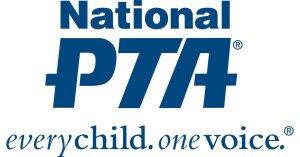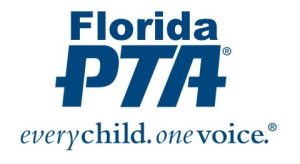Q. How do we get our membership cards? A. You must go to www.floridapta.org and then click on the on the GREEN New and Returning Officers link. You will need your local unit number and EIN number to register.
Q. When are bylaws updated? A. Bylaws are supposed to be updated every 3 years but they can be updated before that if necessary.
Q. Do we have to have an audit? Who can do the audit? A. Yes. An audit is required every year after the books are closed on June 30. Any paid member can help. The audit committee is made up of an odd number of members. The committee also does not have to be from the same unit, if you do not have enough participants. As of July 2014 all units are required to send a copy of their unit’s completed audit to [email protected]
Q. Do local units have to file taxes every year? A. Yes, every unit must file taxes even if no money was made. Once the audit report has been done the treasurer can go to https://epostcard.form990.org/ to file the taxes for the year.
Q. What do we the unit have to report to Florida PTA as of 2014? A. All units are responsible for forwarding a copy of the accepted 990 and the audit report by Nov. 15th and you can email it to [email protected]
Q. Do local units have to pay county dues? A. Yes, local units are responsible to submit their county dues by October 31, to stay in good standing. It is stated in the local unit bylaws that there is a $50 annual membership dues. County Council does not receive any funding from State or National PTA. State will be notified of all units that are compliant with the county for award recognition on state level.
Q. Does our principal dictate where our PTA/PTSA spends money? A. No, your principal cannot dictate where or how your PTA/PTSA spends its money. The principal of your school’s local unit is automatically a board member and as with each board member has one vote.
Q. May our principal be an elected officer? A. Per PTA bylaws, the principal (or designated representative) is automatically on the executive board with voting privilege. PTA discourages principals from being an elected officer as this action takes a board seat away from an additional board member. The principal must also be a paid member to be able to vote. OCPS strongly recommends against any OCPS employee that handles money at the school to be part of the executive committee of the unit.
Q. Is PTA required to operate in the Sunshine? A. No. PTA is a private organization that does not fall under the Florida law that provides a right of access to governmental proceedings at both the state and local levels.
The PTA encourages closed Executive Board meetings. The Board meeting is for the business of the board members only. Guests may be invited to a PTA board or committee meeting to bring special information, but they do not participate as voting members of the group. Generally, they leave the meeting after providing the information.
A “courtesy seat” may be granted by general consent or by vote of the committee members to special guests such as past presidents or representative of other organizations or agencies, giving them permission to attend that particular meeting only. Those granted a courtesy seat may speak with permission of the chair; however, they do not have the privilege of making motions, debating or voting.
Closed meetings allow board members to speak freely when nitty-gritty details or confidential matters must be discussed. However, remember that an individual who is interested enough to attend either committee or board meetings may be worthy of being appointed as an active member of the board.
Q. May PTA units elect co-officers? A. PTA does not recognize co-officers.
Q. What is the policy for pictures on social media and any PTA media? A. Unless you have a signed consent from the parents you are not allowed to post pictures. you can encourage parents to post their own pictures on to the social media pages for your PTA/PTSA unit, or incorporate a consent on your membership forms.
Q. May our PTA/PTSA run the money for the school’s book fair through our account, even though it’s not a PTA project? A. NO, because a PTA/PTSA local unit is a private organization, PTA funds should only be deposited in a PTA/PTSA account. All money deposited in a PTA account will be considered PTA funds by the IRS and must be reported as such. A PTA should never deposit school or school-related money in its account.
If a PTA sponsors a project or program in cooperation with the school, all funds should be accounted for and separated prior to the immediate deposit of the PTA portion in the PTA bank account.
Q. Help! My board is split between the parents who have been on the board for years and years and years and do not like change and those who are new and offering fresh and exciting ideas! As president, what can I do? A. Change is hard on many people and often difficult for them to accept. However, introducing new people to PTA and encouraging their involvement is vital to a local unit’s growth and future existence. The following strategy will help merge the two groups of parents into an effective PTA, and in the process, make your job a little easier:
1. While veteran PTA board members might now be seen as a challenge, their experience is of tremendous value that you won’t want to underestimate. Your respect and acknowledgement will be appreciated and will lead to their support and comfort level with new ideas.
2. Follow local unit bylaws. The bylaws help to establish consistency and provide guidelines for a basic structure within PTA.
3. Follow your unit’s standing rules. If your unit doesn’t have any, consider forming a committee to write them.
4. Have a yearlong plan of activities and events that is voted by the board and then adhered to throughout the year. Make sure that your budget is always approved by your general membership.
5. Remember that PTA operates within a democratic framework allowing everyone to have input, but then making final decisions by voting.
6. You, as president, are in control of the meetings. Encourage everyone who wishes to speak to do so. Acknowledge all comments – from new and veteran board members, alike. Allow discussion, but keep it within reasonable time limits. Don’t let anyone dominate the discussion. Bring items to a vote (after a motion is given and seconded) that you feel need a clear decision.
7. Study and follow Roberts Rules of Order, your FL PTA Kit of Materials and National PTA Annual Resources Guide. A firm knowledge of PTA is essential and will give you backup and guidance to your leadership.
8. Your leadership will set the tone and attitude of PTA in the board meetings and outside, as well. Be sure to speak and listen to all parents and members at functions. Ask for their help. During your general meetings, give a full account of what the PTA is accomplishing (beyond raising funds) and make newsletters informative and educational as to the goals and mission of PTA. The more your general membership knows of PTA the more they will want to be involved.
10. Be sure to train your board to assume leadership roles in accordance with PTA guidelines and suggestions. The more people you train (especially to take on the role of president after your term is over) the more involvement you will have.
Did we answer your question?
Please email [email protected] for assistance.



